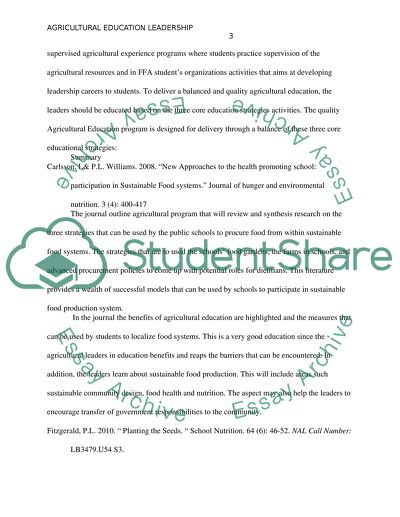Leadership development in Agricultural education Research Paper. Retrieved from https://studentshare.org/agriculture/1476134-leadership-development-in-agricultural-education
Leadership Development in Agricultural Education Research Paper. https://studentshare.org/agriculture/1476134-leadership-development-in-agricultural-education.


